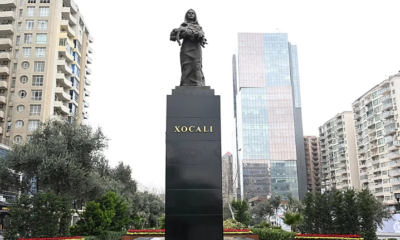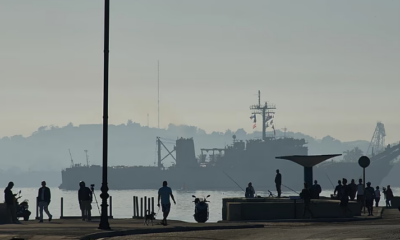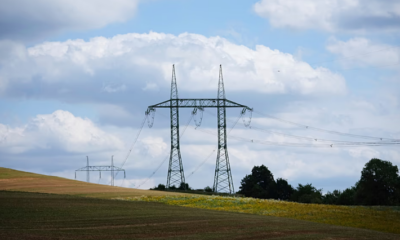News
Flash Floods in Spain’s Valencia Region Leave 62 Dead Amid Torrential Rains
Valencia, Spain – At least 62 people have died following severe flash floods that struck Spain’s southeastern region of Valencia on Tuesday. The unprecedented rainfall left buildings flooded, highways impassable, and entire towns isolated, the regional government of Valencia confirmed on Wednesday. The sudden surge of water trapped residents, washed away vehicles, and caused widespread devastation, with authorities warning that the death toll may rise as search efforts continue.
The flash floods were triggered by record-breaking rainfall, with up to 12 inches of rain falling in several areas across southeastern and eastern Spain within hours on Tuesday. Videos circulating on social media captured scenes of streets in Valencia overwhelmed by torrents of muddy water, while cars, vans, and other debris were swept away in towns like Utiel and Paiporta as nearby rivers breached their banks.
For many residents, the deluge struck without warning, leaving them trapped on first floors and in basements with no means of escape. Spanish Defense Minister Margarita Robles described the incident as an “unprecedented phenomenon,” and confirmed that more than 1,000 military personnel had been deployed to assist in rescue operations. “We are using every available resource to help,” Spanish Prime Minister Pedro Sanchez stated on Wednesday, urging people to remain vigilant as additional rainstorms are expected in the coming days.
Carlos Mazón, the regional leader of Valencia, cautioned residents in Valencia and Castellón provinces to avoid road travel as many highways were rendered unusable by the floodwaters. Mazón reported that some bodies were recovered after rescue teams reached previously inaccessible areas, though he declined to release details out of respect for the families. The flooding damaged infrastructure across the region, with vehicles abandoned in traffic picked up and carried by the powerful currents, compounding the chaos as emergency responders struggled to access affected areas.
Among those caught in the deluge, local resident Antonio Carmona described the harrowing moments as he witnessed cars, garbage cans, and parts of buildings swept away. “We saw everything being washed down the street. The water took cars and even half of a neighbor’s house,” Carmona told reporters. Clutching his torn clothing, he recalled how he and others had saved dogs caught in the rising floodwaters.
In Torrent, a city near Valencia, Beatriz Garrote recounted her experience of being trapped in her car for hours. Driving home from work on Tuesday evening, Garrote found herself stranded on a ring road with water rapidly rising around her. “I was terrified,” Garrote said, as her car was encircled by floodwaters. “After just 10 minutes, the water was already halfway up the car’s wheels,” she said. With no exits available, she and other drivers were left to wait until the waters receded.
The Valencia region typically receives an average of three inches of rain in October, but towns like Chiva recorded over 12 inches in just four hours, according to the European Severe Weather Database. Flooding also impacted the cities of Murcia and Malaga, where some areas received over four inches of rain.
Spain’s Meteorological Agency (AEMET) has issued ongoing warnings for heavy rainfall through the week, as climate experts link the intensity of these storms to human-driven climate change. Elevated global temperatures and warmer oceans are intensifying rainfall events, experts say, increasing the likelihood of such catastrophic flooding in the future.
News
Cruise Passengers Stranded Amid Escalating Middle East Crisis

The Persian Gulf is currently characterised by hostilities. The Strait of Hormuz is closed to shipping, with only vessels connected to China or Russia allowed to pass. The escalating crisis in the region has left thousands of tourists stranded on cruise ships and disrupted air travel.
On Sunday afternoon, a missile struck the water near the Mein Schiff 4, operated by TUI Cruises, while the ship was docked in Abu Dhabi, United Arab Emirates. Clouds of black smoke were reported over the water, according to the Bild newspaper. The vessel carries approximately 2,500 passengers and 1,000 crew members, with many due to return to Germany from Dubai. The situation on board is tense, and it is not yet clear if anyone was injured.
Security measures on the ship remain strict. Passengers are prohibited from entering outside decks, are advised to avoid windows, and receive regular alerts on their smartphones about potential incoming missile threats.
A sister ship, Mein Schiff 5, berthed in Doha, Qatar, is also affected. Passengers attempting to fly home from Doha on Saturday were forced to return to the ship after flights were canceled. Many had already boarded aircraft and had to leave luggage at the airport, waiting around ten hours before being taken back to the ship in the evening.
Other cruise lines are similarly affected. Six vessels are currently docked across ports in Dubai, Abu Dhabi, and Doha. These include the MSC Euribia from MSC Cruises, the Celestyal Discovery and Celestyal Journey from Celestyal Cruises, and the Aroya from the Saudi operator Aroya Cruises.
The closure of airspace in multiple countries in the region has compounded the situation, preventing passengers from flying home. Thousands remain stranded, unsure when they will be able to continue their journeys or be evacuated safely.
The crisis follows US and Israeli strikes in the region on Saturday, which prompted retaliatory attacks by Iran targeting military positions in the Persian Gulf. Cruise passengers, many of whom expected a calm holiday, have instead faced a sudden escalation in regional tensions.
Authorities in ports and embassies are coordinating with shipping companies to maintain safety and provide updates, but the rapidly evolving security situation has made evacuation and travel plans uncertain. Tourists are advised to follow official guidance and avoid unnecessary movement on or around their vessels.
The disruption highlights the wider impact of escalating hostilities in the Gulf, affecting not only commercial shipping but also tourism and international travel. Passengers on affected cruise ships and flights face prolonged delays as authorities work to stabilize the situation and ensure safety in the region.
News
Azerbaijan Commemorates Khojaly Massacre with New Memorial and National Ceremony
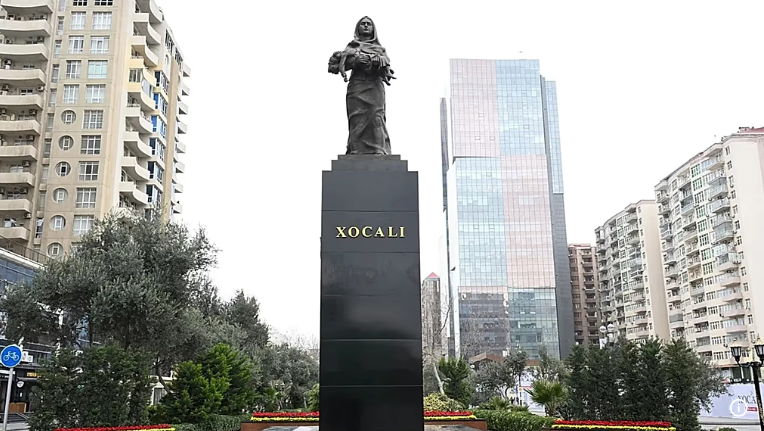
Azerbaijan held nationwide commemorations on Thursday to mourn the hundreds of civilians killed in February 1992 in the town of Khojaly during the Karabakh conflict with Armenia. President Ilham Aliyev led the ceremonies, inaugurating a new Khojaly Genocide Memorial Complex in Baku to honor the victims of what he described as “the greatest tragedy for the Azerbaijani people.”
Thousands of people gathered at the Khojaly Massacre Memorial in Baku for the National Day of Remembrance. A minute of silence was observed across the country as citizens paid tribute to those who lost their lives over 30 years ago.
Azerbaijani authorities state that 613 civilians, including women and children, were killed when Armenian forces, with the support of the former Soviet Union’s 366th Guards Motor Rifle Regiment, attacked Khojaly. Dozens more were reported missing or injured during the assault, which occurred amid the war between ethnic Armenian forces backed by Armenia and Azerbaijani troops over the Karabakh region and surrounding areas.
Human Rights Watch conducted its own investigation into the incident, attributing direct responsibility for the civilian deaths to Karabakh Armenian forces. Armenia has repeatedly denied the accusations, arguing that the reported death toll was exaggerated and that casualties resulted from fighting between the two sides.
Despite differing accounts, the Khojaly tragedy remains a deeply significant event in Azerbaijan’s collective memory. Commemorations continue to emphasize the human cost of the conflict and the impact on generations of Azerbaijanis.
This year’s ceremonies took place against the backdrop of a peace and reconciliation process between Azerbaijan and Armenia. Both nations have pledged to work toward a more stable and peaceful future following decades of conflict and suffering on both sides.
President Aliyev emphasized the importance of remembering the past while looking forward. The newly inaugurated memorial complex aims to provide a permanent site for reflection, ensuring that the victims of Khojaly are remembered by future generations.
The National Day of Remembrance has become a focal point for public reflection and national unity, drawing participants from across Azerbaijan. Observers note that the ceremonies serve both to honor the victims and to reinforce awareness of the historical and ongoing challenges in the Karabakh region.
Over 30 years after the massacre, Khojaly continues to hold a central place in Azerbaijani history. Thursday’s events highlighted the nation’s efforts to commemorate the past while supporting dialogue and cooperation with Armenia to foster lasting peace in the South Caucasus.
News
Four Killed After Clash Between Cuban Coast Guards and US-Registered Boat
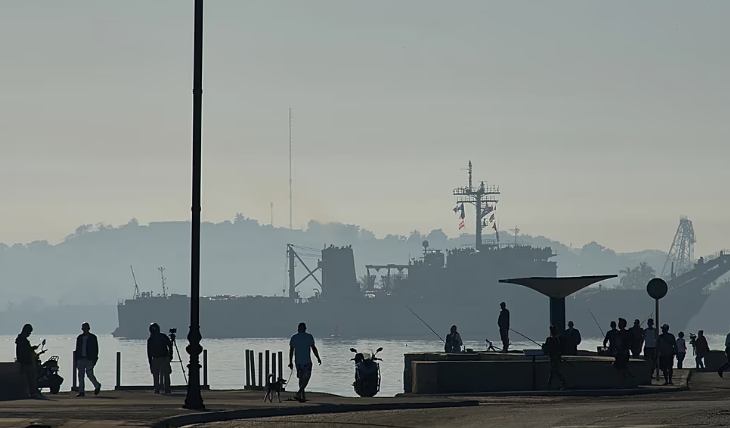
Cuban border guards shot and killed four people aboard a Florida-registered speedboat on Wednesday after the vessel allegedly failed to stop in Cuban territorial waters and opened fire on a patrol boat, authorities in Havana said.
In a statement, the Cuban Ministry of Interior said the boat was detected about one nautical mile from Falcones Cay in Villa Clara province. A patrol unit was dispatched to identify the vessel and its occupants. Officials said the speedboat refused to comply with orders and that gunfire broke out during the encounter.
According to the ministry, six other passengers were injured in the exchange. The commander of the Cuban patrol boat, which carried five crew members, was also wounded. Authorities said all injured individuals were taken to safety and received medical treatment.
Cuba’s government later stated that the 10 people on board were armed Cuban nationals residing in the United States who were attempting to enter the island to carry out what it described as terrorist acts. Officials added that most of the passengers had a history of criminal and violent activity.
Two of the passengers were identified as Amijail Sánchez González and Leordan Enrique Cruz Gómez, both of whom Cuban authorities say are wanted in connection with activities linked to terrorism. The government said it obtained details about those on board through questioning of detainees after the confrontation.
The ministry reaffirmed its commitment to defending the country’s sovereignty and territorial integrity against threats by land, sea or air.
In Washington, Marco Rubio said US officials were gathering information to determine whether the victims were American citizens or permanent residents. Speaking at the airport in Basseterre, Saint Kitts, where he was attending a regional summit with Caribbean leaders, Rubio said the United States would independently verify the facts.
He emphasised that the incident was not a US government operation and declined to speculate about the ownership of the boat or the intentions of those on board. Rubio said US authorities would establish what happened before deciding on any response.
The clash comes at a time of heightened tensions between Washington and Havana. Donald Trump recently imposed an oil blockade on Cuba, citing its support for Venezuela’s former president, Nicolás Maduro. The measures have cut off oil and financial flows from Venezuela to Cuba.
Cuban President Miguel Díaz-Canel has rejected US pressure, insisting that any dialogue must respect Cuba’s sovereignty. Cuban officials have criticised the oil restrictions, saying they are harming the island’s economy and public services.
The investigation into Wednesday’s shooting remains ongoing.
-

 Entertainment2 years ago
Entertainment2 years agoMeta Acquires Tilda Swinton VR Doc ‘Impulse: Playing With Reality’
-

 Business2 years ago
Business2 years agoSaudi Arabia’s Model for Sustainable Aviation Practices
-

 Business2 years ago
Business2 years agoRecent Developments in Small Business Taxes
-

 Home Improvement1 year ago
Home Improvement1 year agoEffective Drain Cleaning: A Key to a Healthy Plumbing System
-

 Politics2 years ago
Politics2 years agoWho was Ebrahim Raisi and his status in Iranian Politics?
-

 Business2 years ago
Business2 years agoCarrectly: Revolutionizing Car Care in Chicago
-

 Sports2 years ago
Sports2 years agoKeely Hodgkinson Wins Britain’s First Athletics Gold at Paris Olympics in 800m
-

 Business2 years ago
Business2 years agoSaudi Arabia: Foreign Direct Investment Rises by 5.6% in Q1



